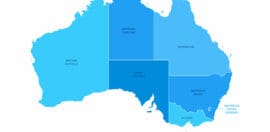Australia’s hunger crisis leaving vulnerable women without food

14 October 2019 at 4:40 pm
Charities are struggling to cope with a 22 per cent increase in demand for food relief
Women are bearing the brunt of Australia’s worsening hunger crisis, with new research showing women are 50 per cent more likely than men to go without enough food.
The Foodbank Hunger Report 2019 found more than one in five Australians have experienced food insecurity in the past year, while there has been a 22 per cent increase in the number of people seeking food relief.
Charities are struggling to meet this growing demand, with only 37 per cent of charities surveyed meeting the full needs of people they have helped.
Foodbank Australia CEO Brianna Casey said the report – which surveyed 2,000 charities and 1,000 people – aimed to paint a picture of the nation’s growing hunger crisis.
“We hear so many heart-breaking stories, from mothers skipping meals so their children can eat, to elderly women left on their own feeling isolated because they can’t offer their neighbours or friends so much as a cup of tea or coffee,” Casey said.
“We knew the situation was bad, but this year’s report confirms that it’s getting worse and the impact is skewed towards our most vulnerable women in the community.”
Women are 50 per cent more likely to experience food insecurity than men, with a quarter of all women experiencing some form of food insecurity in the past 12 months.
Casey told Pro Bono News this was the first time that Foodbank’s research had uncovered such a striking gender imbalance.
“I believe rising domestic violence is one reason for these [skewed] figures,” she said.
“There’s also many women who have raised children on their own for an extended period of time. This puts women in economic circumstances where food suddenly becomes a discretionary item in their household budget.”
Recent research has shown people are relying on charity food for 7.5 years on average.
Casey said charities were struggling to cope with this entrenched demand.
“We are seeing demand go through the roof, whether that be attributable to the high cost of living, the low rates of Newstart, or general economic circumstances,” she said.
“Foodbank is doing an outstanding job with providing food relief, but we are treating the symptoms of food insecurity, not the cause.”
Casey said Australia needed a long-term, whole-of-government plan to tackle this crisis, including a National Food Security Strategy aimed at achieving zero hunger across the country by 2030.
She said there were also some simple reforms that could be introduced by the federal government.
“Taxation reform, for example, could unlock considerably more food by incentivising the transportation and donation of groceries,” she said.
“These are very simple measures that could be implemented very quickly – and at a relatively low cost to government – that would deliver great outcomes for vulnerable Australians.”







